The rise of online payments highlights the importance of payment gateways for businesses and individuals. Introduced in the mid-1990s, with Stanford Federal Credit Union leading the way in 1994, these systems transformed how transactions are conducted, moving from time-consuming physical processes to seamless digital experiences.
Did you know the first online purchase was a pizza from Pizza Hut? Today, payment gateways enable businesses to reach global markets and provide secure, efficient systems for ecommerce. Entrepreneurs can now grow their online presence while leveraging flexible hosting solutions to manage multiple clients or businesses effectively.
Questions like “How can I send money to my family?” or “How do I pay for a service?” are answered by modern payment gateways , which simplify transactions and help businesses scale operations.
This article explores what payment gateways are, how they work, and their role in digital transactions. Whether running an online store or managing client websites, secure hosting and reliable payment gateways are key to success.
What is an Online Payment Gateway?
A payment gateway is a software application that processes card transactions online, providing a gateway between a client, a merchant, and a payment processing bank.
The mechanism reads and transfers a client's payment details to a merchant's bank account. Its role is to capture the data, ensure funds are available, and get a merchant paid. The gateway uses encryption to ensure information security between the customer, merchant, and the acquiring bank.
Online Payment Key Players
With online payment processing, customer credit card data is gathered and encrypted through a payment gateway for subsequent processing. It is a crucial part of the electronic payment processing system because it is the technology in charge of transferring consumer data to the merchant-acquiring bank. This process involves key stakeholders involved, from the minute the "Buy Now" button is clicked, and these players are identified as thus:
Cardholder
A shopper, customer, or client.
Merchant
A company or any individual who makes a sale.
Issuing banks
The financial institutions that hold the customer's account, whether a credit card account or a current account linked to a debit card.
Card Schemes
Credit card companies that manage cards - such as Visa, MasterCard, or American Express.
Acquiring bank
A financial institution that holds the account of the merchant.
How does Online Payment Gateway Work?
As was already mentioned, online payment gateways serve as the link between an online store or business and its customers. The gateways encrypt the cardholder's information and authorize the customer's payment. Once payment has been confirmed by the issuing bank; the money is deposited into the merchant account. In addition to being safe, the gateway itself makes it simple for any store or business to support online purchases.
To better understand how online payment gateways work, let’s go through a common scenario: On a merchant's website, a customer initiates a transaction by clicking on the "action" button, which then takes them to the payment page.
The customer then inputs credit card information that may include a CVV code, credit or debit card number, a password, etc. This information goes to the acquiring bank through the payment gateway.
When the payment processor interfaces with the card network used by the customer, the issuing bank receives the transaction confirming if there are sufficient funds in the customer's account and, depending on the outcome, either authorizes or rejects the payment.
After approval is confirmed, the payment gateway sends it back to the merchant's website, and the merchant informs the customer that the purchase has been successfully completed.
In its simplest form, the payment gateway allows a customer's data to be transferred to the bank effectively to pay for a product or service. There are so many methods and ways that payment gateways work, a couple of methods include online bank transfers, digital wallets, QR codes, online credit/debit cards, and BNPL (buy now pay later).
8 Top Online Payment Gateway Providers
Payment gateways simplify the online payment process and assist businesses in receiving payments faster, more conveniently, and with better security. Technologies are constantly evolving, mirroring developing consumer tastes and improving technical capacities, and payment gateways are no different. Several payment gateway platforms can offer seamless transactions here are a few examples:
1. Square
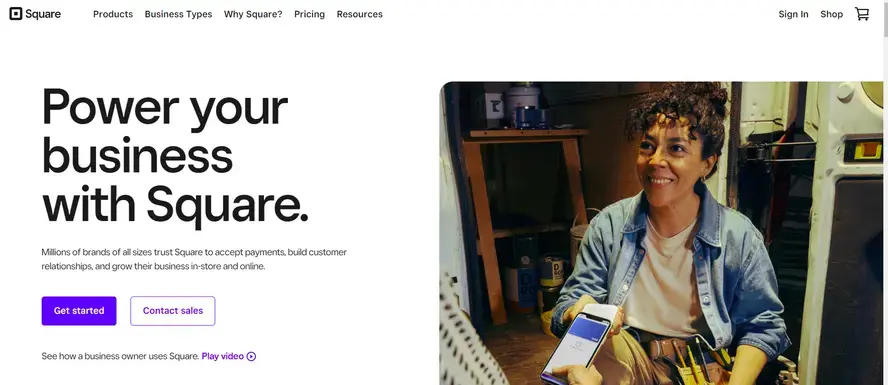
2. Authorize.Net
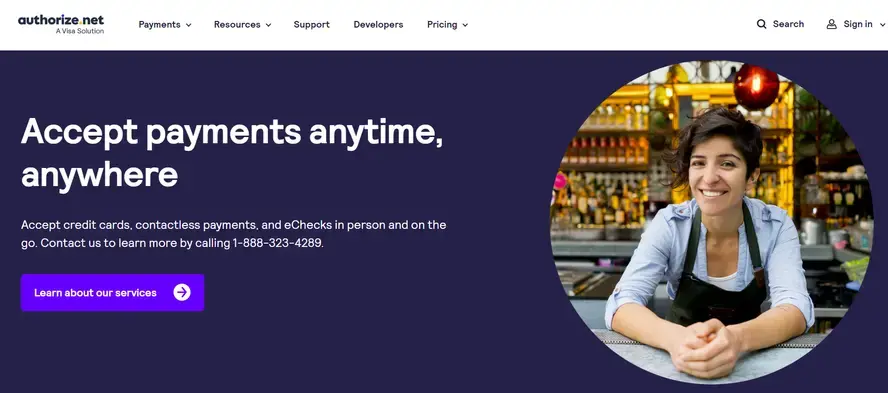
Authorize.Net is a payment gateway service provider that offers different payment services with a variety of payment options for e-commerce, e-check, mobile payments, etc. Authorize.Net is very flexible and offers payment options for most countries in the world apart from the US or European countries, it also offers easy integration with accounting software such as a quick book for invoicing.
3. PayPal
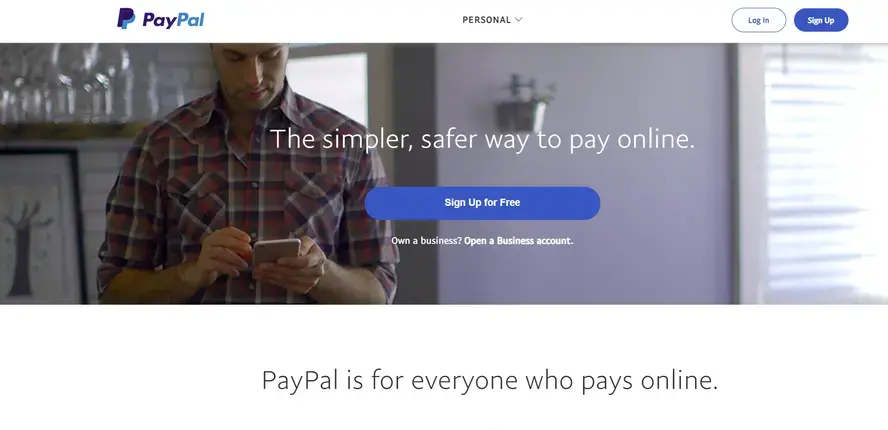
Paypal is one of the most popular payment gateways that offers services for buyers and sellers to purchase products and services or personal transactions like money transfers to friends and family. It offers various services like money management, digital wallet and so much more.
4. Stripe
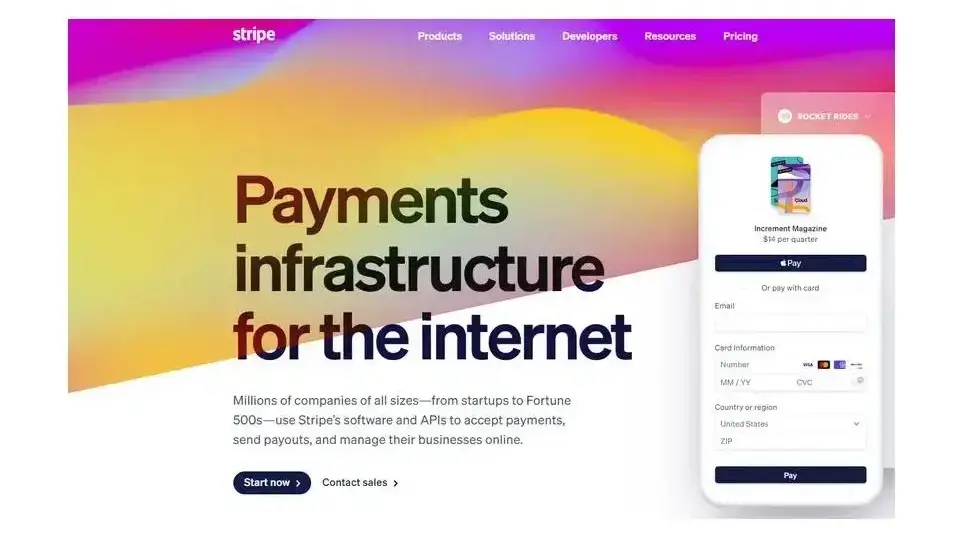
Stripe is an online payment gateway and processor that can be used on websites, eCommerce sites, and various transaction systems. It is available on various platforms and it allows debit/credit card payments, etc. There’s also a functionality that allows re-current transactions, however, there’s a fee attached to the service as well.
Check out our Stripe vs. PayPal comparison article.
5. Wise
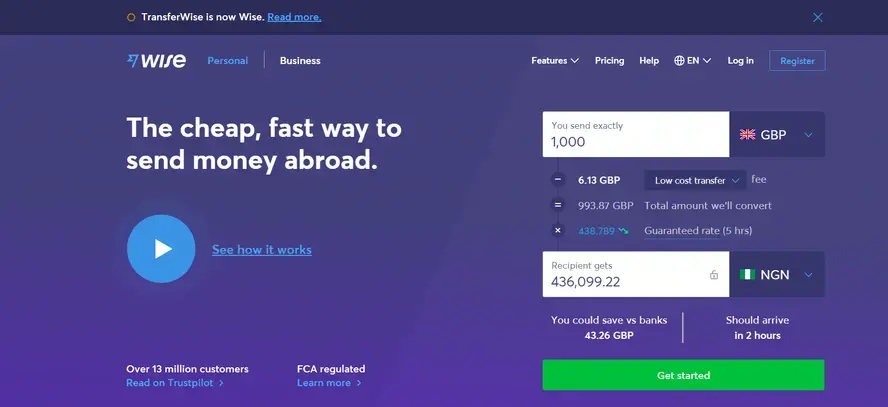
Wise international payment gateway was formerly known as Transfer wise. With an impressive record of 13 million users, this company offers a cheap and fast way to send and receive money abroad. The wise transaction fee is low which makes it one of the best options to choose from based on the services it offers, however, one thing to consider is its lack of supported payment options, in other words payment options are limited depending on the country of choice.
6. Apple Pay
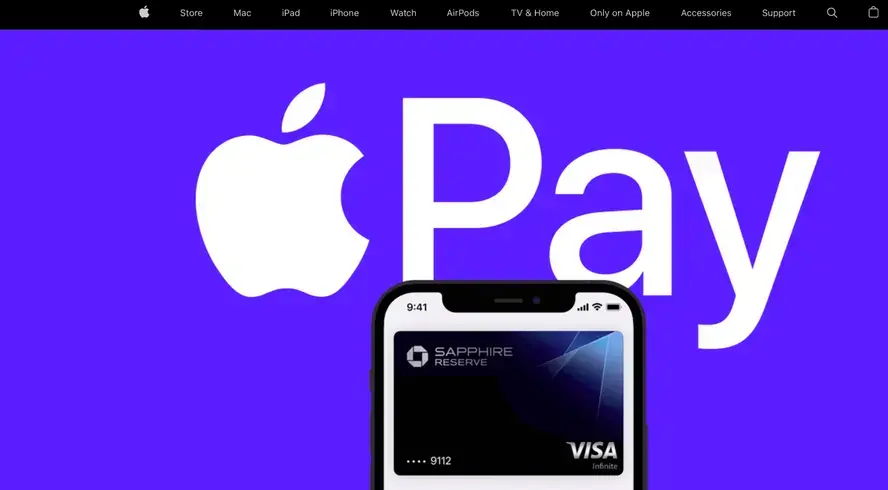
Apple pay is a contactless payment system that enables merchants to handle payment in stores, online, and in apps. Apple pay acts as an intermediary between a customer and the bank.
With apple pay, personal data is protected, when a purchase is made apple pay uses a device-specific number and a unique code so that your card number is not stored on your device or apple server. In other words, your card number is never shared by Apple with the merchant.
7. Amazon Pay
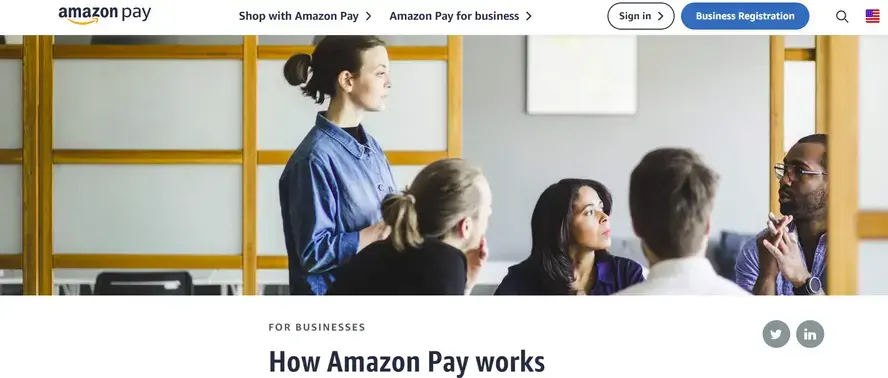
Amazon pay is an online payment service that allows customers to make purchases on third-party websites. It is used for both domestic and international transactions, and users and customers can store their amazon credentials on the amazon.com account without the need to type in their credit card and billing information for subsequent transactions.
8. Payoneer
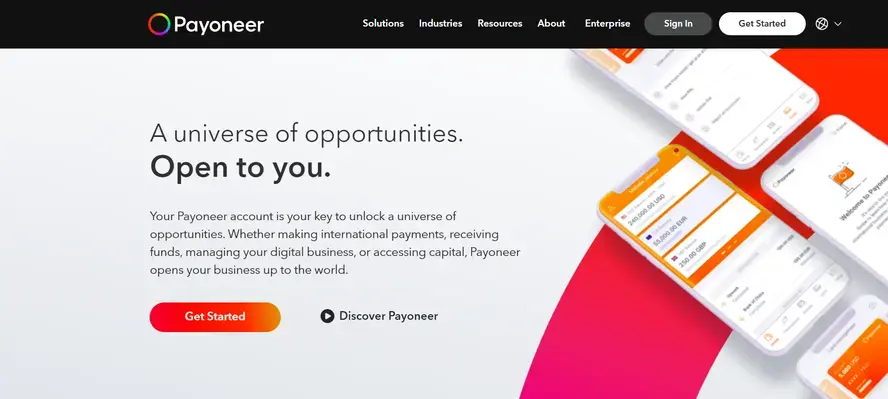
Payoneer is a financial service company that offers digital payment services and online money transfers, for freelancers and service providers, e-commerce marketplace sellers, and so on.
With Payoneer, you can pay clients with invoices or receive payment from companies, Payoneer also accepts payment in various currencies i.e. USD, EUR, GBP, AUD, and JPY offer a lower fee for transfers, and once payment is received, you are able to withdraw at your local bank account in your local currency. This payment gateway is available and is supported in over 150 countries for contractors, suppliers, etc.
Online Payment Safety Measures
Payment gateway technology architecture differs per platform and they are constantly evolving. A few years ago, terminals accepted credit cards using a magnetic strip with paper signature requirements from customers.
Today, with chip technology the signature has been replaced by a personal identification number. While online gateways evolve, it is necessary to be cautious and you can secure your information by doing the following:
Do not share your password or card/CVV code.
Do not save card details online.
Always use a private network for transactions.
Make sure that the payment gateway is one that is trusted.
Advantages and Disadvantages of Online Payments
Advantages
Disadvantages
Advantages of Online Payments
Overall, payment gateways simplify the online payment process for all key players involved, here are more benefits of the software application:
Ease
Transactions can be carried out at any time of the day, or at a time that’s convenient. This transaction can be done anywhere from home, work, or the gym, there’s no limit to accessing online payment as long as you’re connected to the internet.
Fast Transaction
Making transactions online is really fast which saves time, you do not need to go to the bank or stand in a queue to make purchases, you can make any type of transaction at your convenience as you please.
Recurring Bill
Automatic payments or subscriptions are also options that you can consider with a trusted online payment gateway. This makes it easier and faster without the necessity of inputting payment details for a product or service that’s recurring.
Security
Transactions are secure, especially for trusted payment services, because the payment transactions are encrypted to ensure data is protected. The security standard PCI DSS (Payment Card Industry Data Security Standard) is enforced to ensure that companies that carry out payment processes maintain a secure environment, also the use of fraud screening tools is required to avoid the security risk.
No Loss or Theft
Because of the use of payment gateways, transactions are carried out without the need for physical cash, which cancels out incidents such as stolen or misplaced physical wallets.
Disadvantages of Online Payments
Data Breaches
A data breach or cyber-attack/phishing can occur, which means sensitive and confidential information can be accessed, resulting in the loss of financial resources. Password security is important. If your password or card details fall into the wrong hands, they will/can be misused.
Network Disruption
An Internet connection is a necessity. If the network server is down, which causes a loss of connectivity from the merchant or consumer, this will make it impossible to carry out transactions, which can be frustrating at both ends.
Service Fee
Payment gateway and processor require a payment processing fee for transactions.
Impulse Buying
Due to the ease and accessibility of carrying out transactions online, consumers are most likely to make unnecessary purchase decisions, which is uneconomical.
Restrictions
Some payment gateways are not accessible or available in every country. For example, Stripe is only available in a limited number of countries. Each payment system has a limit on the number of transactions and the amount that you can transact per day.
Conclusion
Payment gateways have become indispensable in today’s digital economy. They simplify transactions, eliminate barriers to business, and ensure customers can transact safely and securely. While issues like security and network connectivity require attention, the ease and efficiency of online payment gateways are undeniable.
With the right platform, you can seamlessly send money, pay for products, and conduct transactions across continents. Choosing a solid hosting foundation is equally important for an ecommerce website’s success. Verpex offers a range of plans; WordPress hosting, cloud hosting, managed servers, and more to help you build and manage websites effortlessly while ensuring a seamless online experience for your users.
Frequently Asked Questions
Can I upgrade my business over time?
According to the demands that your business has, you can elevate your reseller hosting account at any moment.
Are website builders easy to use?
One of the easiest ways to build a website is with a website builder. Using a website builder doesn't require any programming and coding skills.
Is a website on WordPress safe?
Websites on WordPress are safe, however to avoid hacking keep your website up to date.
What are the shipping methods available for online stores?
You can choose between ship-from-DC, ship-from-dropshipper, ship-from-store, in-store pickup, and ship-to-store.

Jessica Agorye is a developer based in Lagos, Nigeria. A witty creative with a love for life, she is dedicated to sharing insights and inspiring others through her writing. With over 5 years of writing experience, she believes that content is king.
View all posts by Jessica Agorye





















